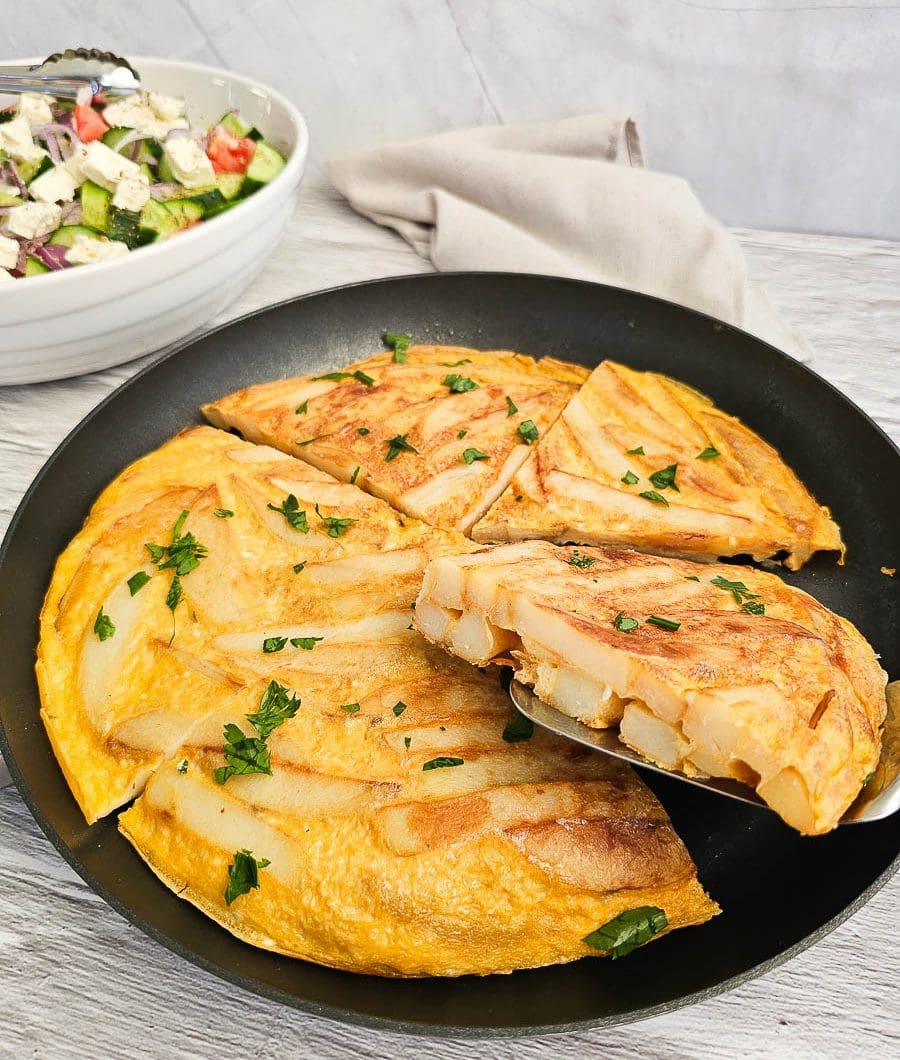This Greek Style Potato Omelette, known as ‘Patata Omeletta’, is made by combining Greek olive oil fries with fluffy eggs and parmesan cheese. It is then pan fried until golden. Enjoy it for breakfast or pair it with a crisp Greek Salad for a satisfying lunch or dinner option.
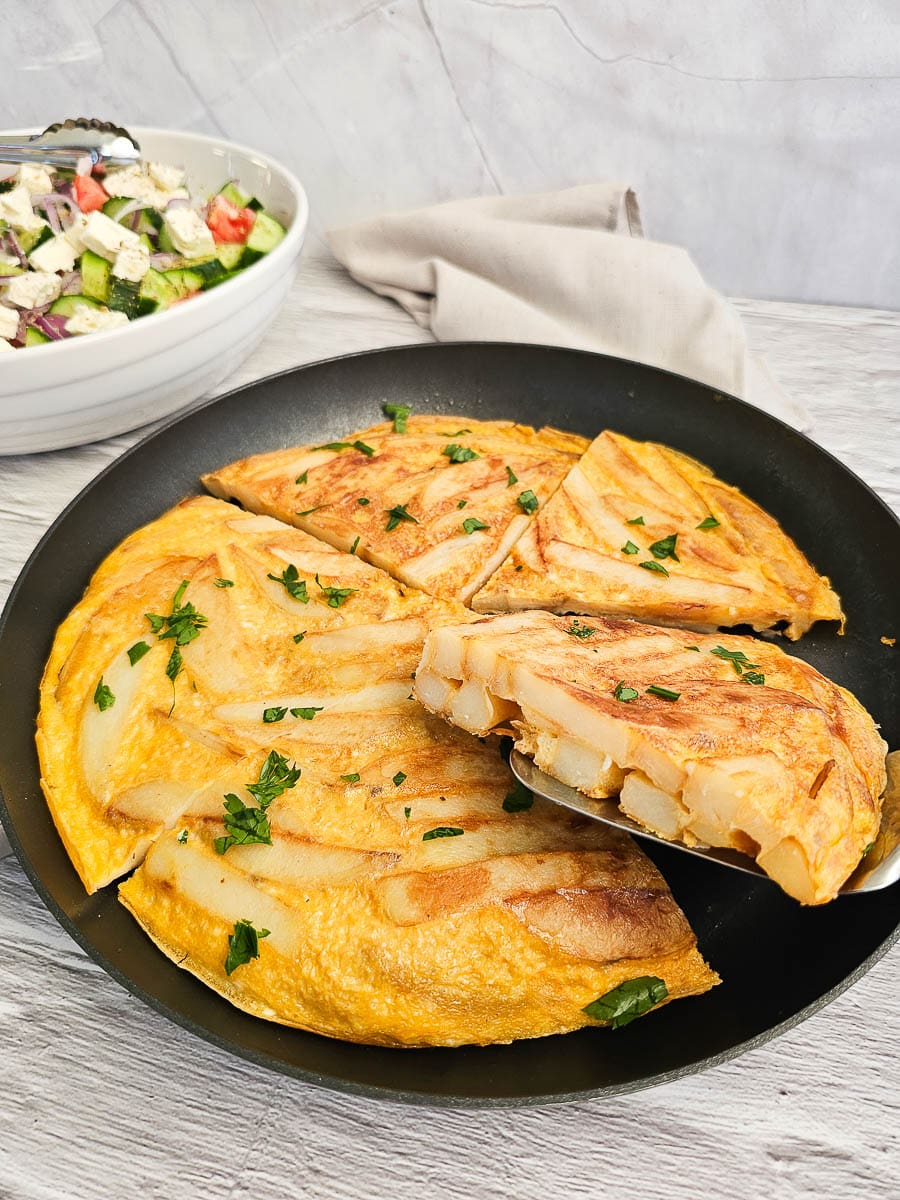
Greek Style Potato Omelette is a family favourite, even for the pickiest eaters in my household. Growing up, I always considered it a treat when we ate Potato Omelette – it was like eating fries (which I absolutely love) but transformed into a satisfying omelette. No complaints from me! My mum would call this dish ‘patata omeletta’, which simply translates to ‘potato omelette’. As kids, we would call it ‘potato chip omelette’. What makes this omelette special is the use of extra virgin olive oil when deep frying the potatoes, which adds a unique Greek taste to the fries.
Greek Style Potato Omelette Ingredients
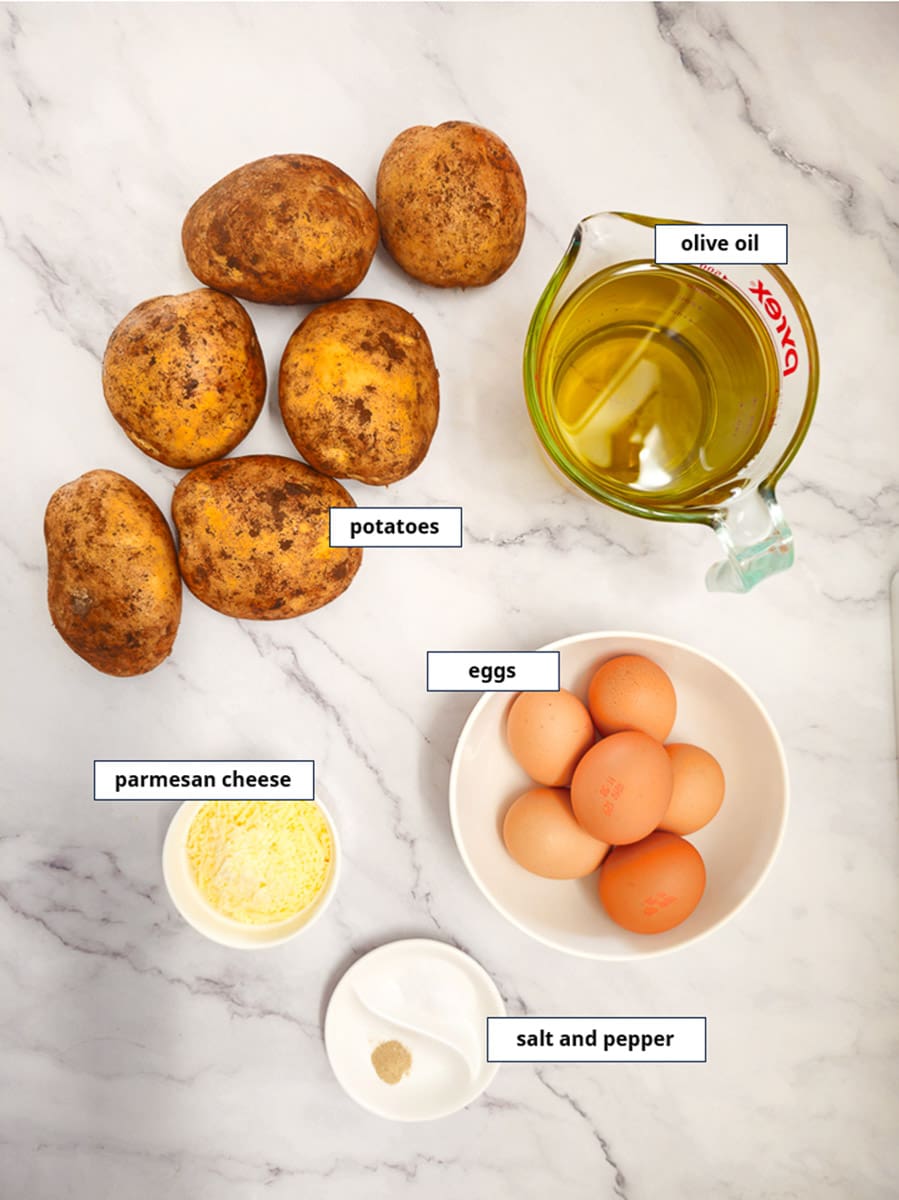
- Potatoes: Use potatoes suitable for frying for a crisp exterior and a creamy texture on the inside. Some suggestions for potatoes suitable for frying include: Australia – Sebago (brushed potatoes), US – Russet, UK – Maris Piper, NZ – Agria, Europe – Bintje, Asia – King Edward, Africa – Sifra.
- Extra-virgin olive oil: Use extra-virgin olive oil to give a unique and rich flavour to your omelette as opposed to the more neutral, milder taste of vegetable oil. The oil can be cooled, strained and reused 2-3 more times for future deep frying or cooking.
- Eggs: The eggs bind the potatoes together and create a more filling dish.
- Cheese: I like to use freshly grated Parmesan cheese or Romano, as this is what my mum always used when making this Potato Omelette, and I prefer the flavour. Alternatively, you could use feta cheese if you prefer a tangier omelette.
How to make Greek Style Potato Omelette
To make the Greek olive oil fries
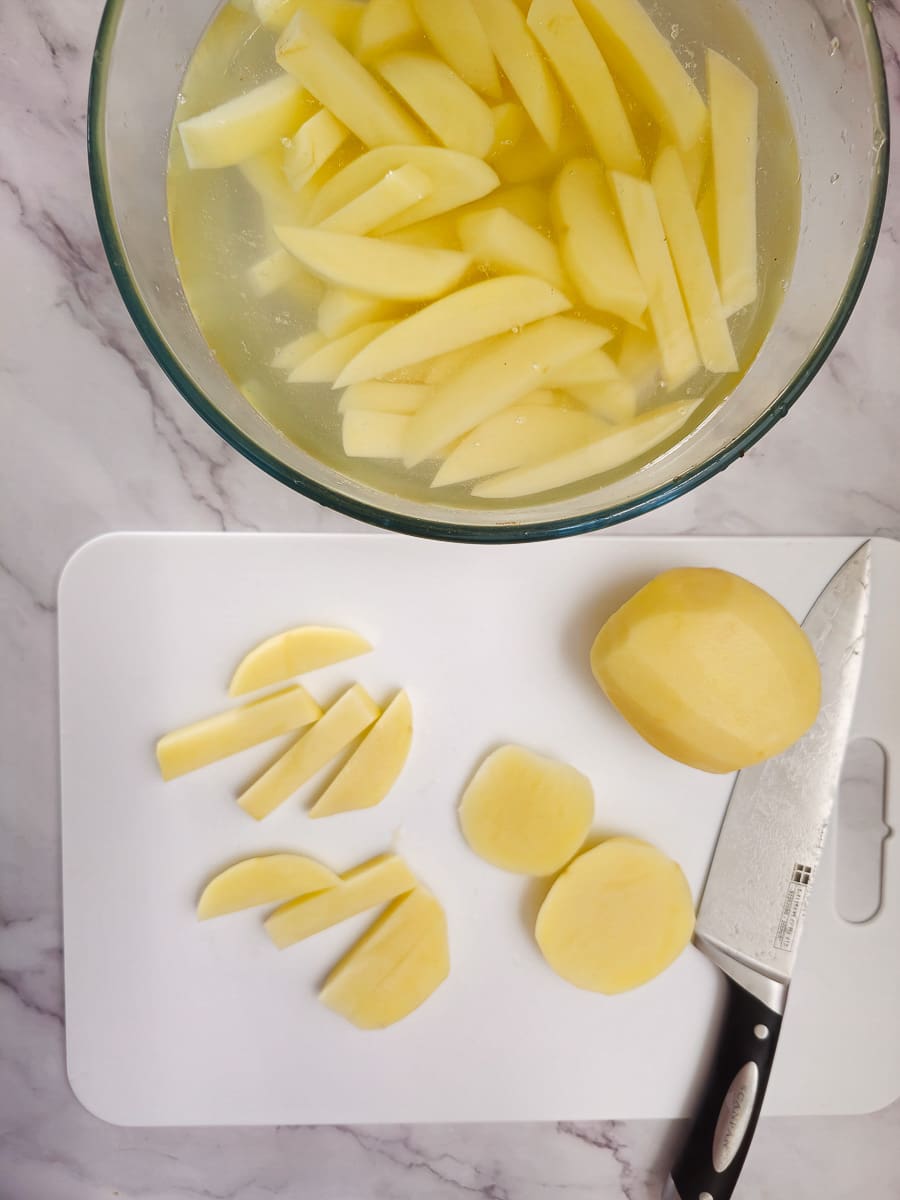
1. Peel and slice the potatoes into strips. Soak the potato strips in a bowl of cold water for 30 minutes.
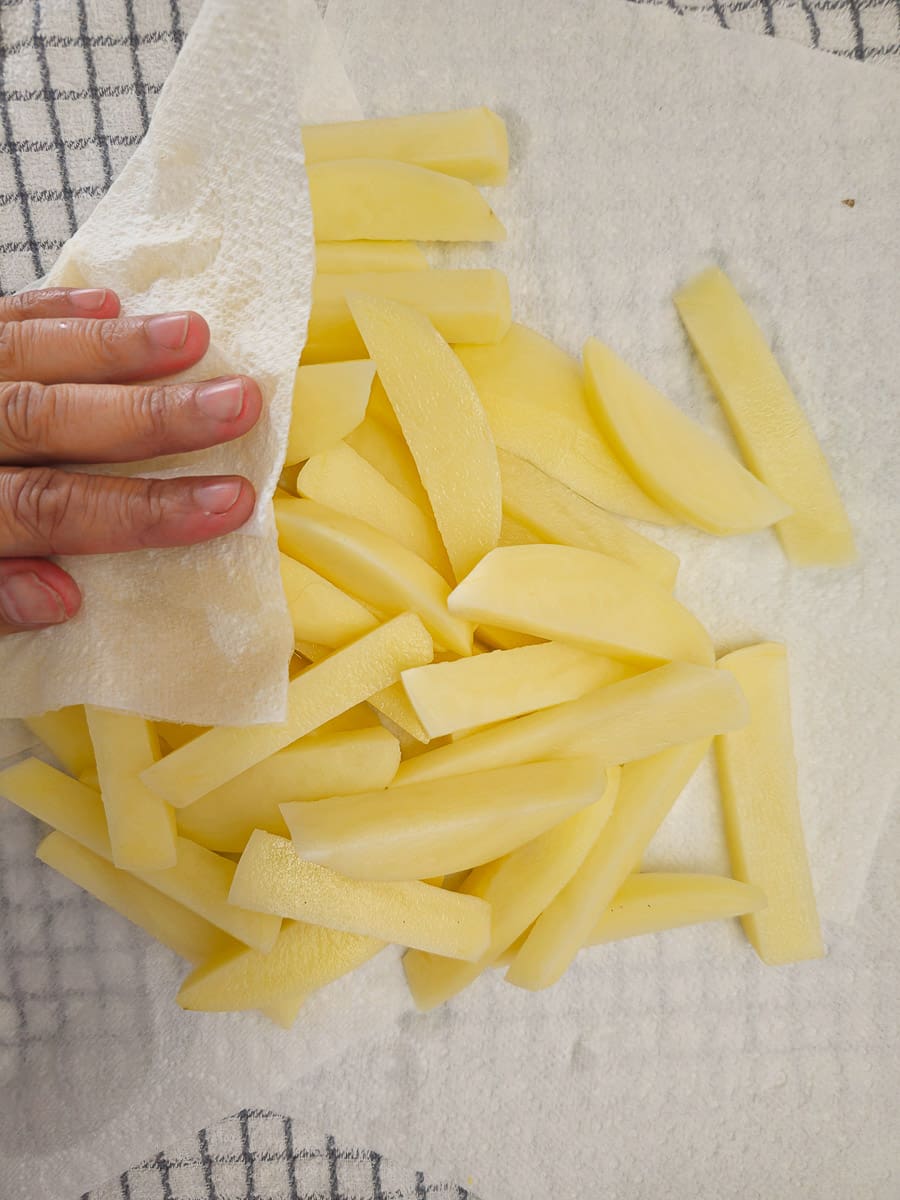
2. Drain and pat dry to remove excess moisture.
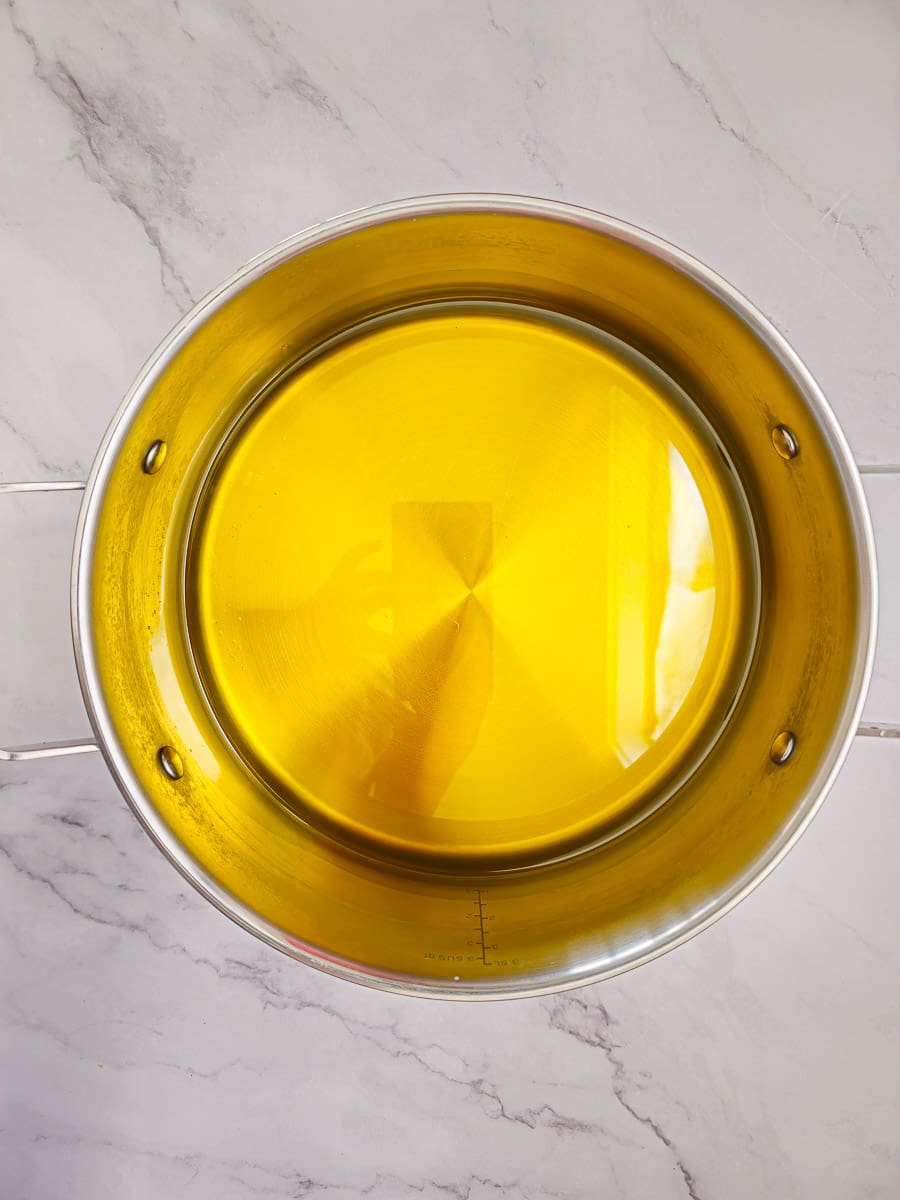
3. Heat oil in a heavy based saucepan to approximately 175°C/350°F.

4. Test that the oil is hot enough by using a thermometer or adding a raw potato strip to the oil. If the potato strip sizzles, it is ready.
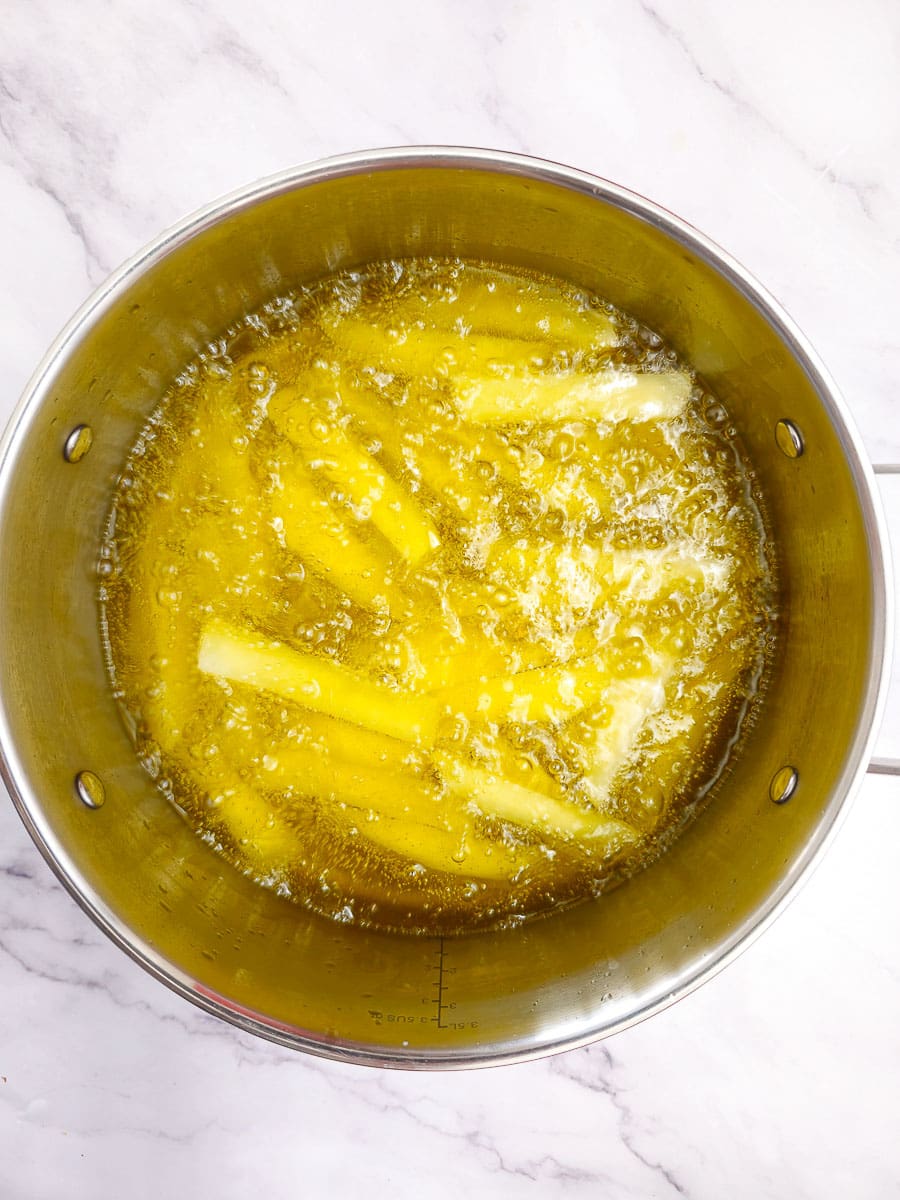
5. Fry the potatoes in batches.
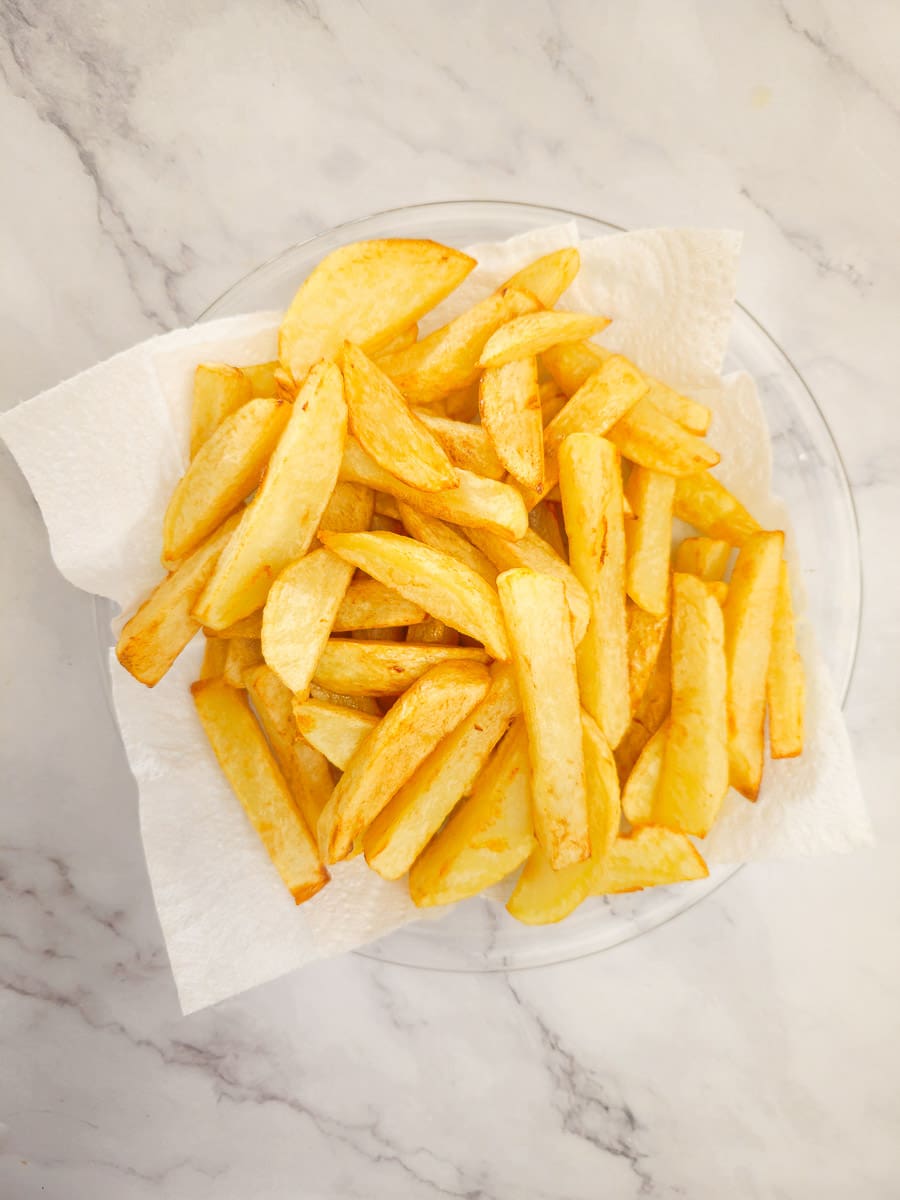
6. Drain on a paper towel and season with salt.
For the omellete
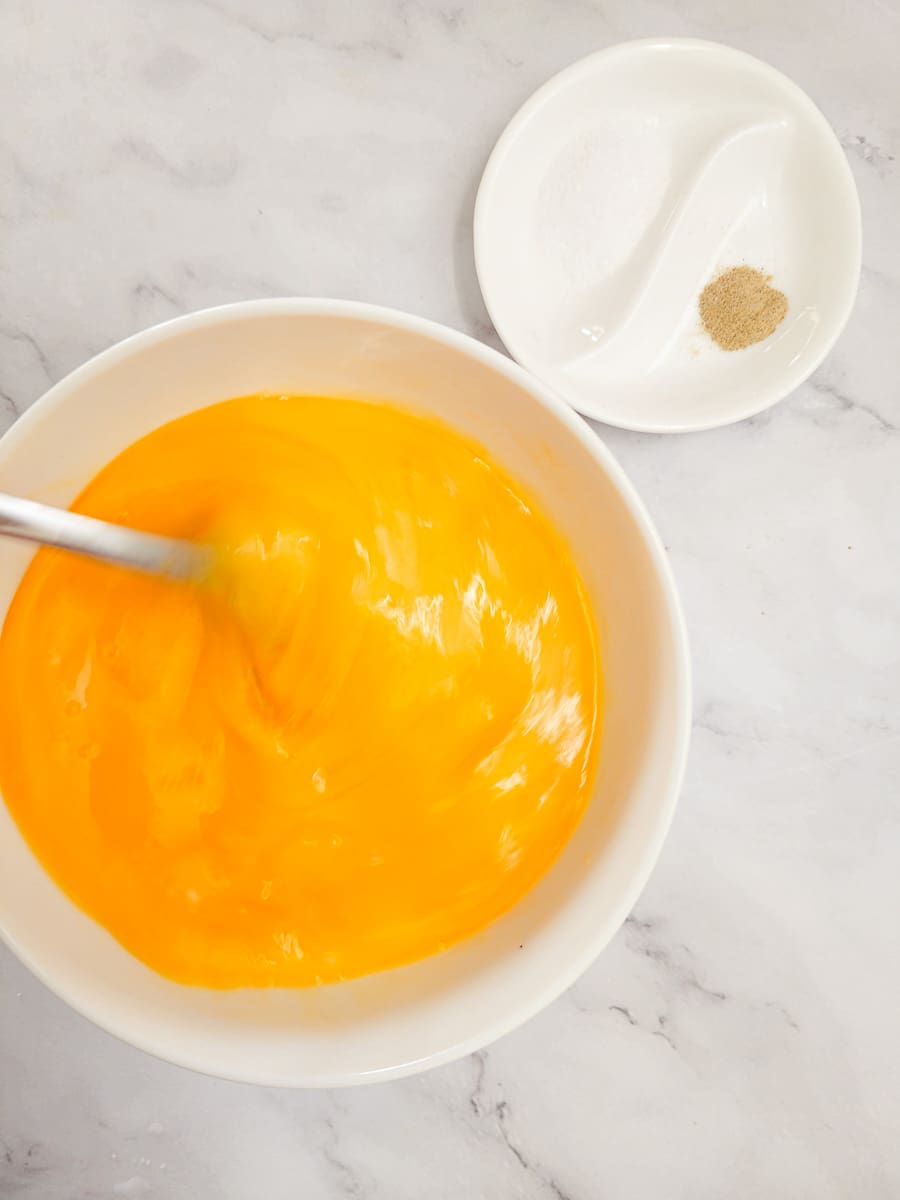
1. Whisk together the eggs, salt and pepper in a mixing bowl.
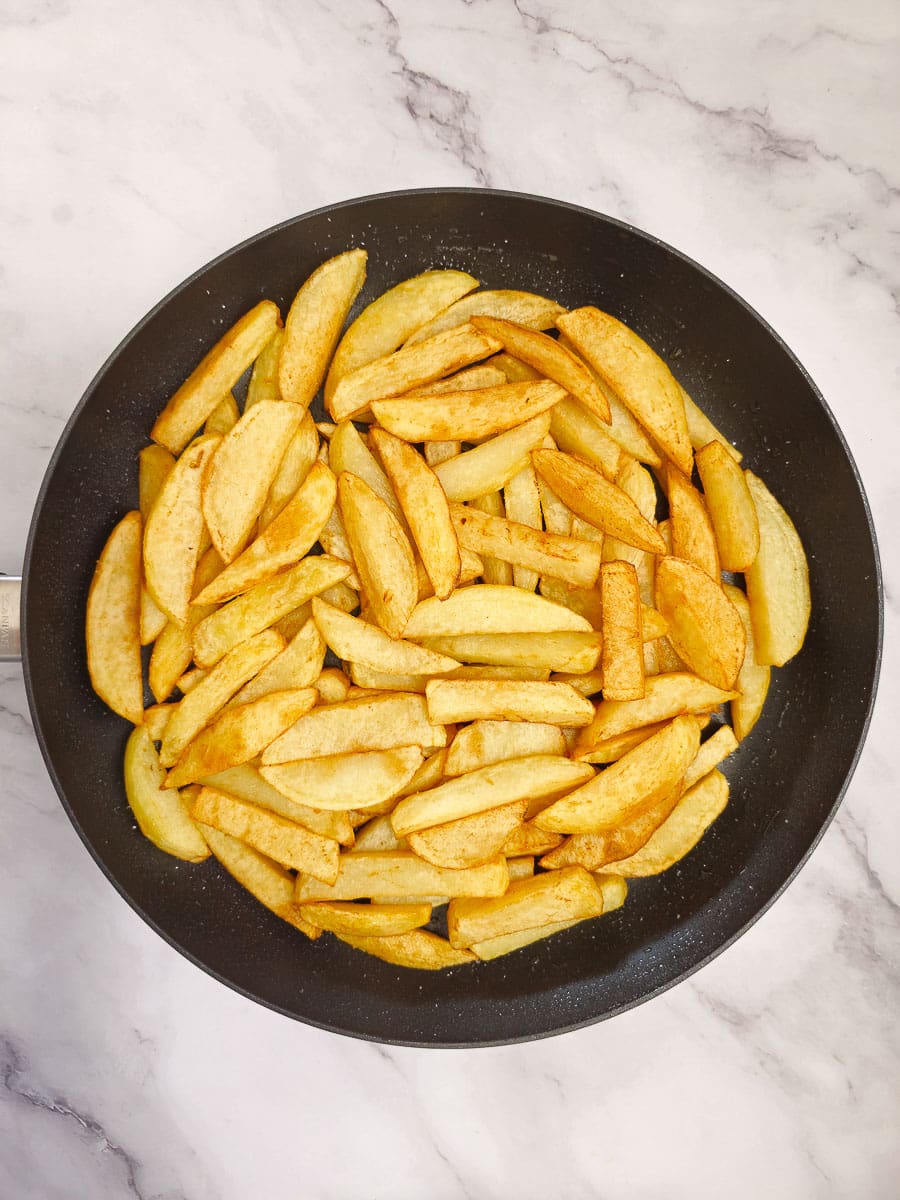
2. Lightly oil pan and spread the potato fries evenly over the base of the frying pan.
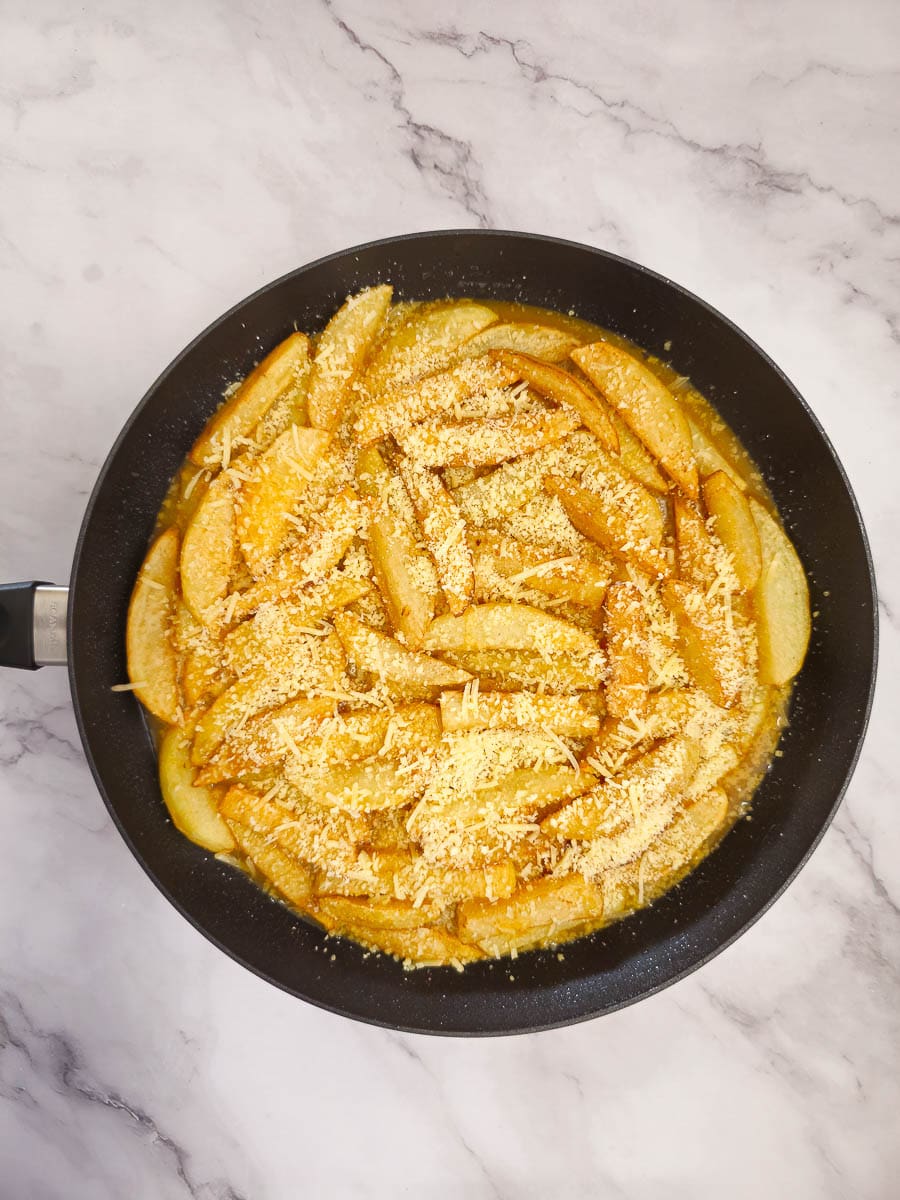
3. Set the frying pan to medium-low heat. Pour egg mixture over potatoes and then sprinkle generously with parmesan cheese.
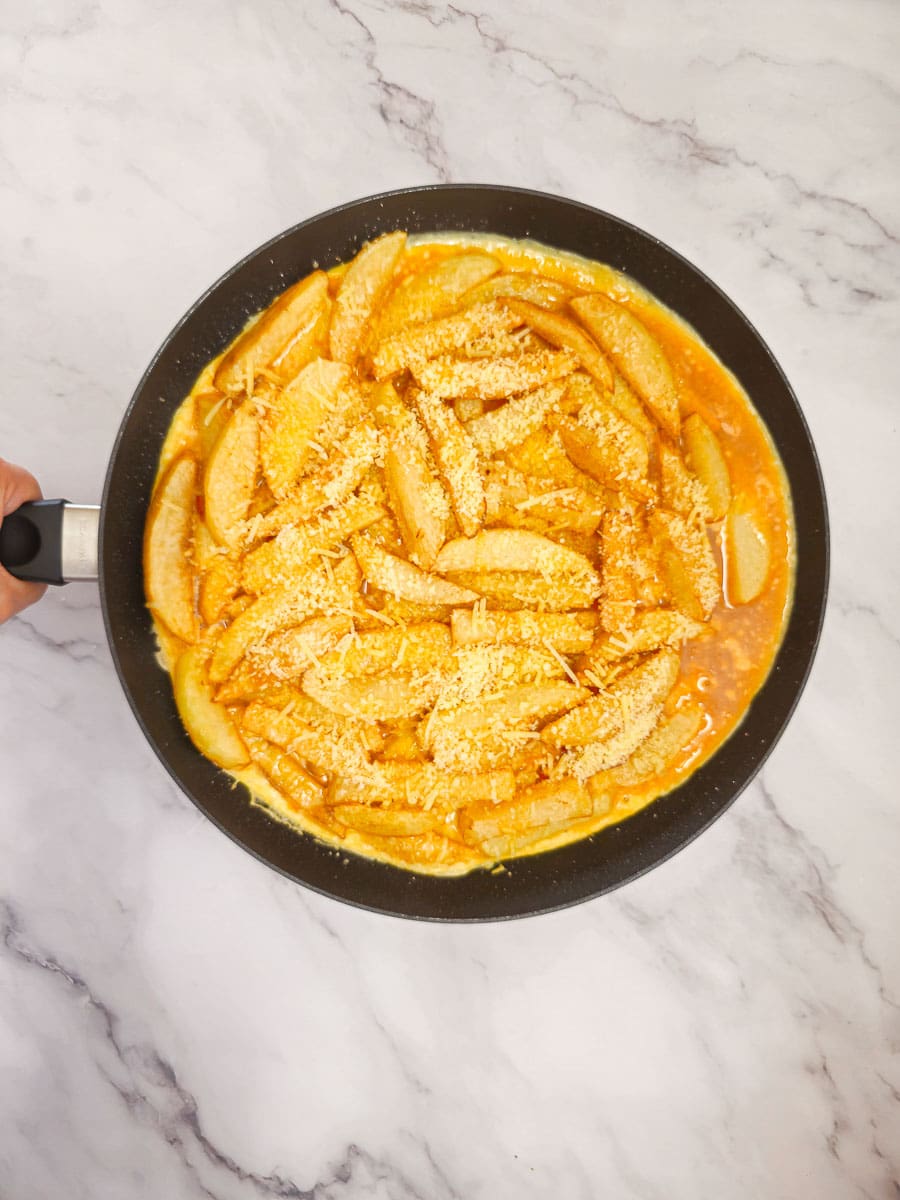
4. Once the edges have firmed up, but the centre remains slightly runny, gently tilt the pan to allow the runny egg to go to the sides of the frying pan.
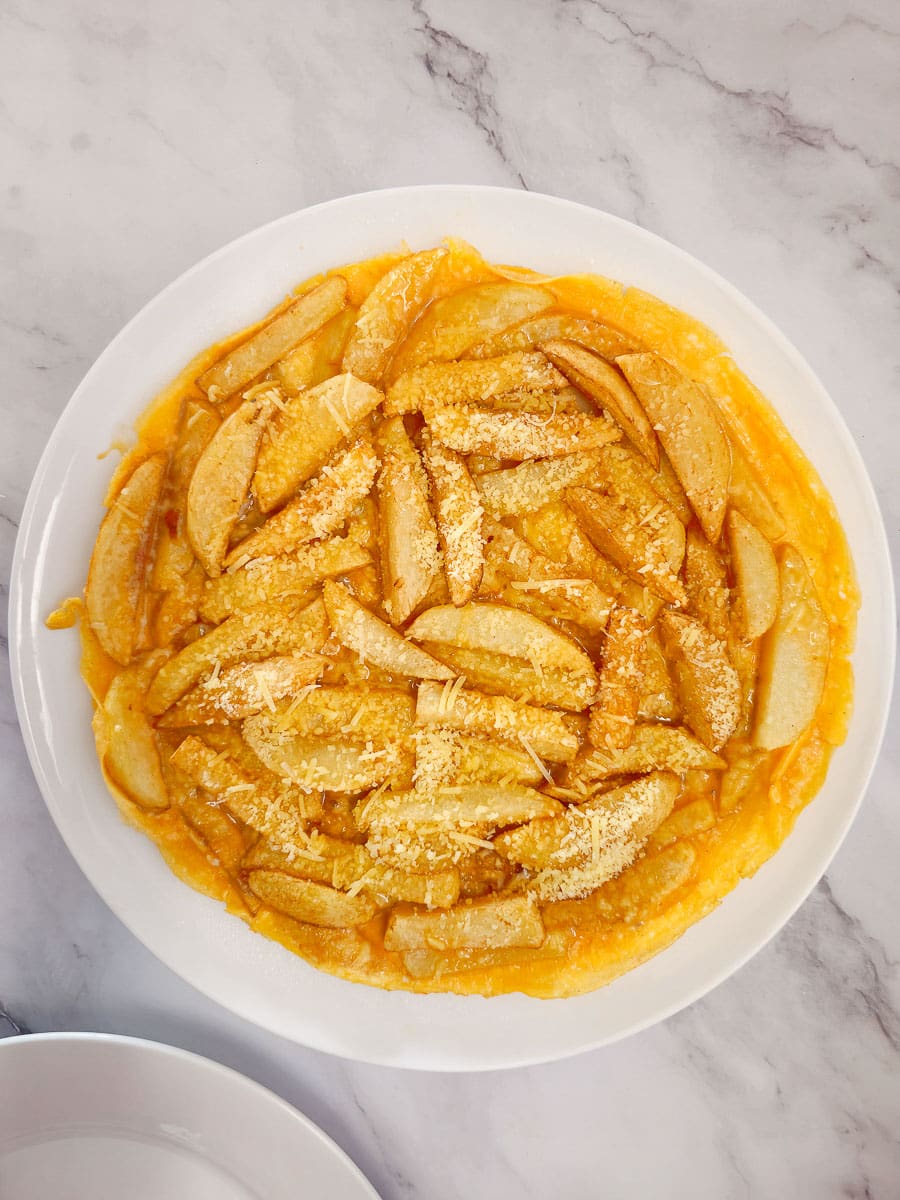
5. When the bottom is lightly browned and egg is slightly set, slide omelette onto a large plate.
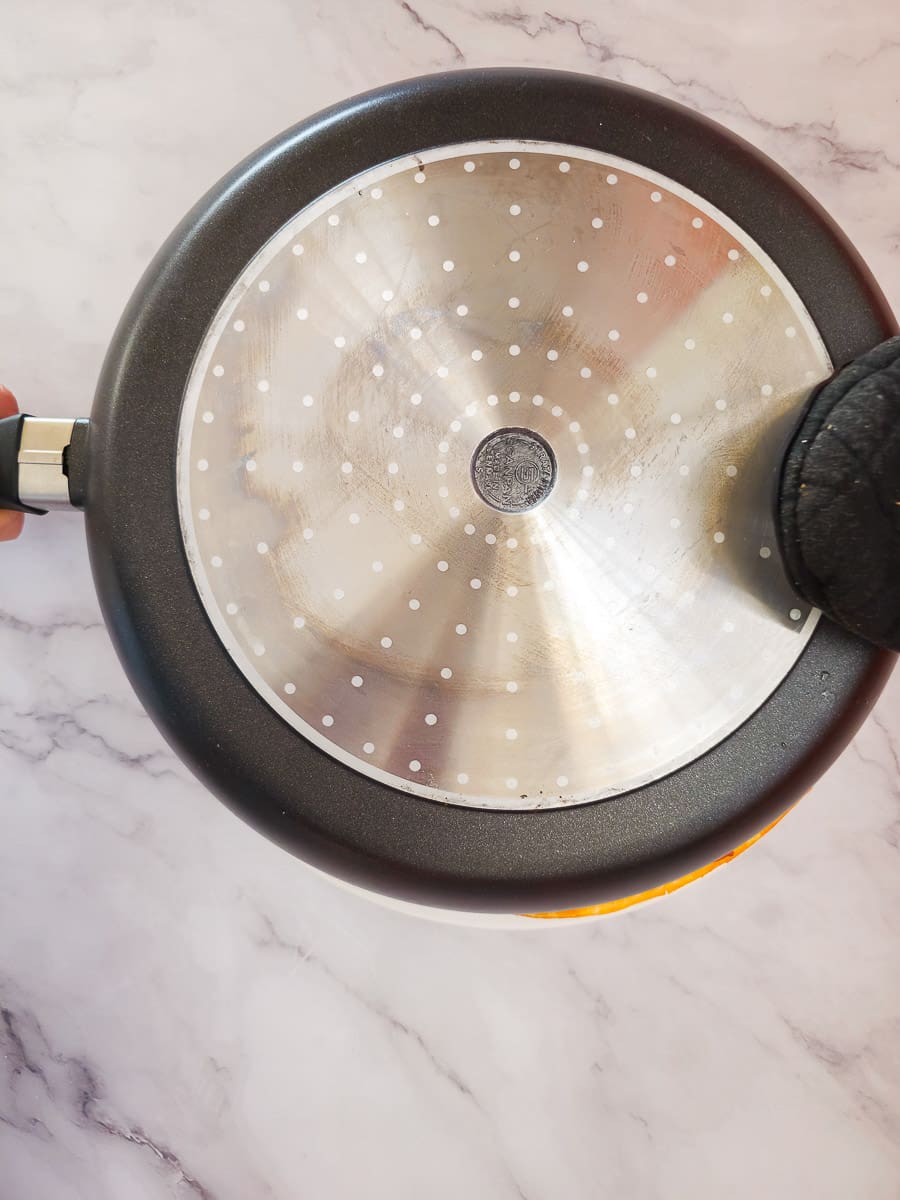
6. Place the frying pan over the plate and carefully flip the omelette back into the pan.
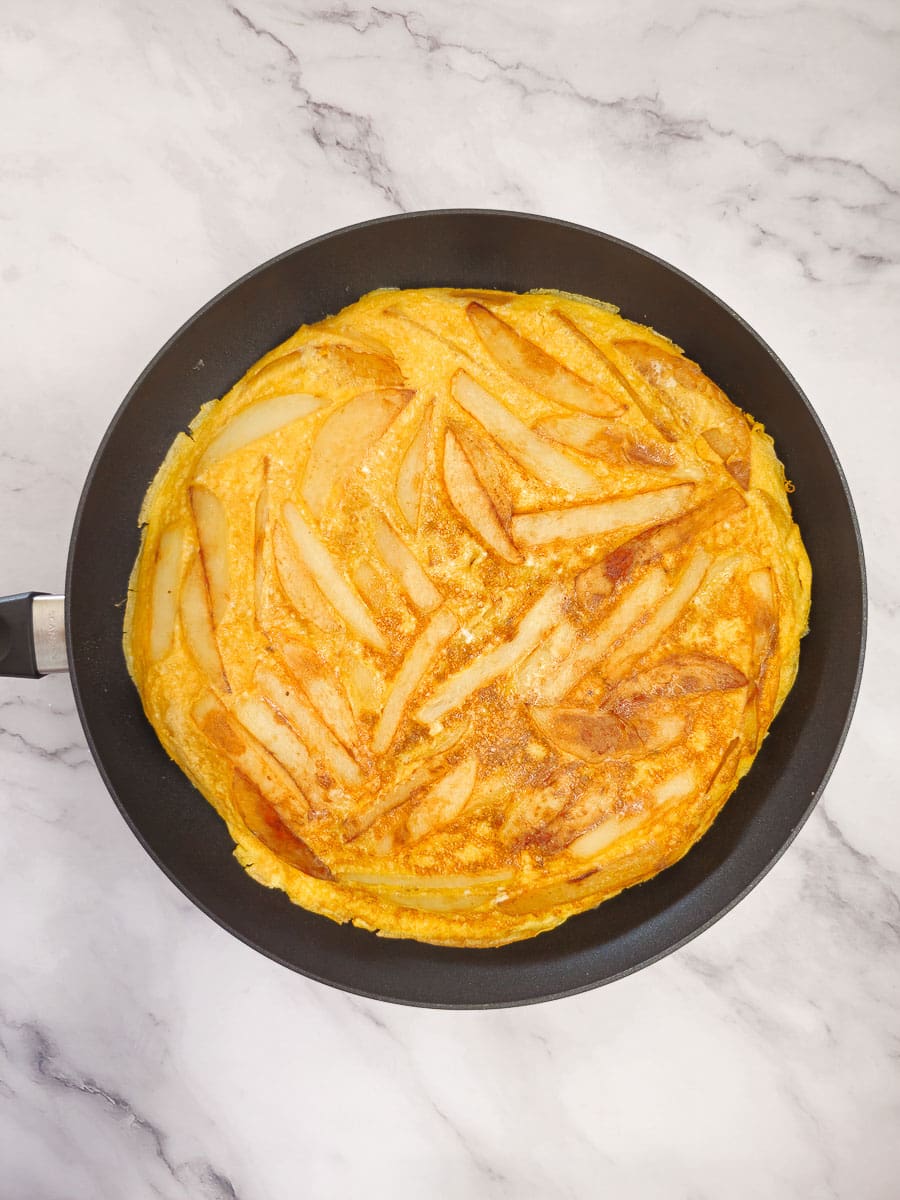
7. Cook for a further 2-3 minutes until lightly browned underneath.

8. Serve on its own or with a Greek Salad or a Greek Lettuce Salad (Maroulosalata).
To bake the fries
If you prefer, you can bake the fries and add to the omelette, instead of deep frying.
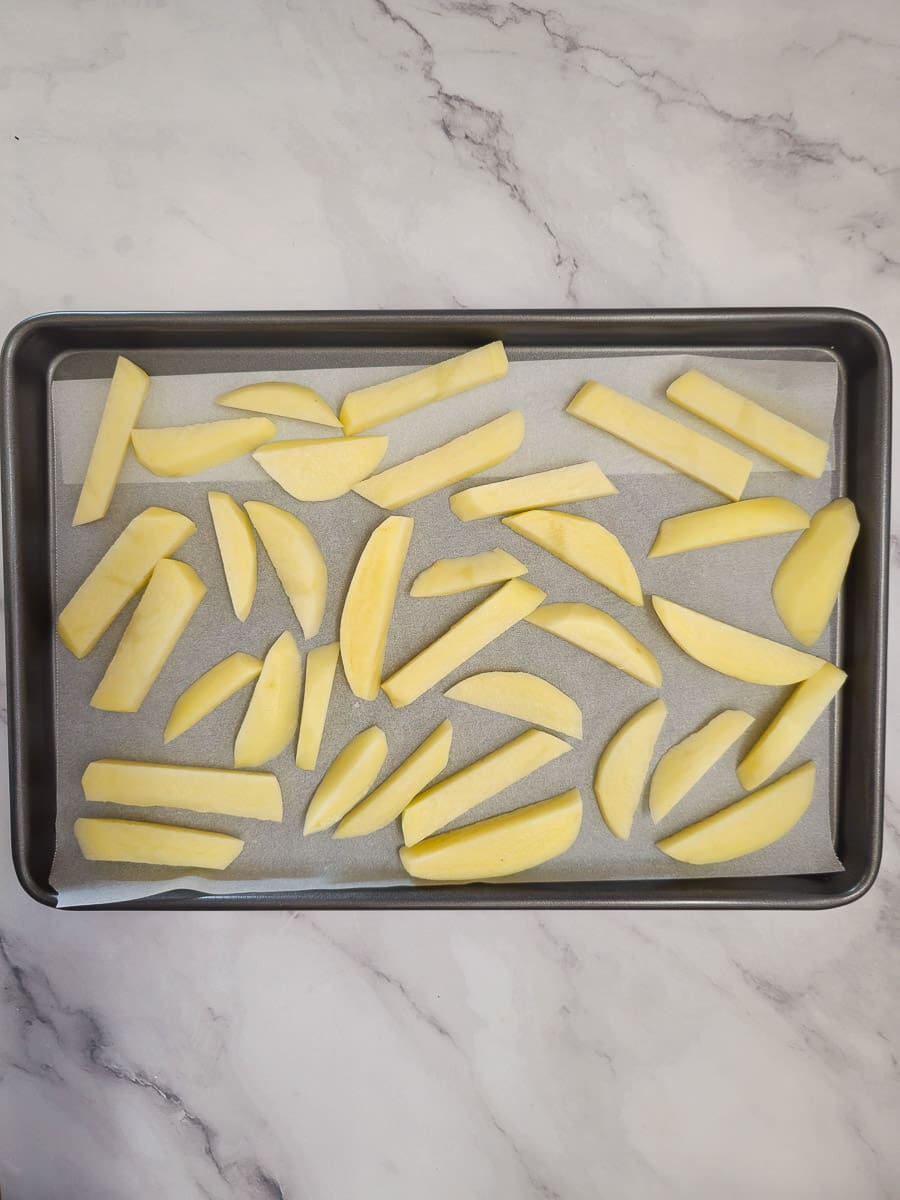
1. Place the potato fries in a large bowl. Coat with 1/3 cup of olive oil and sprinkle with salt. Spread the potato fries in a single layer on a baking sheet lined with baking paper / parchment paper.
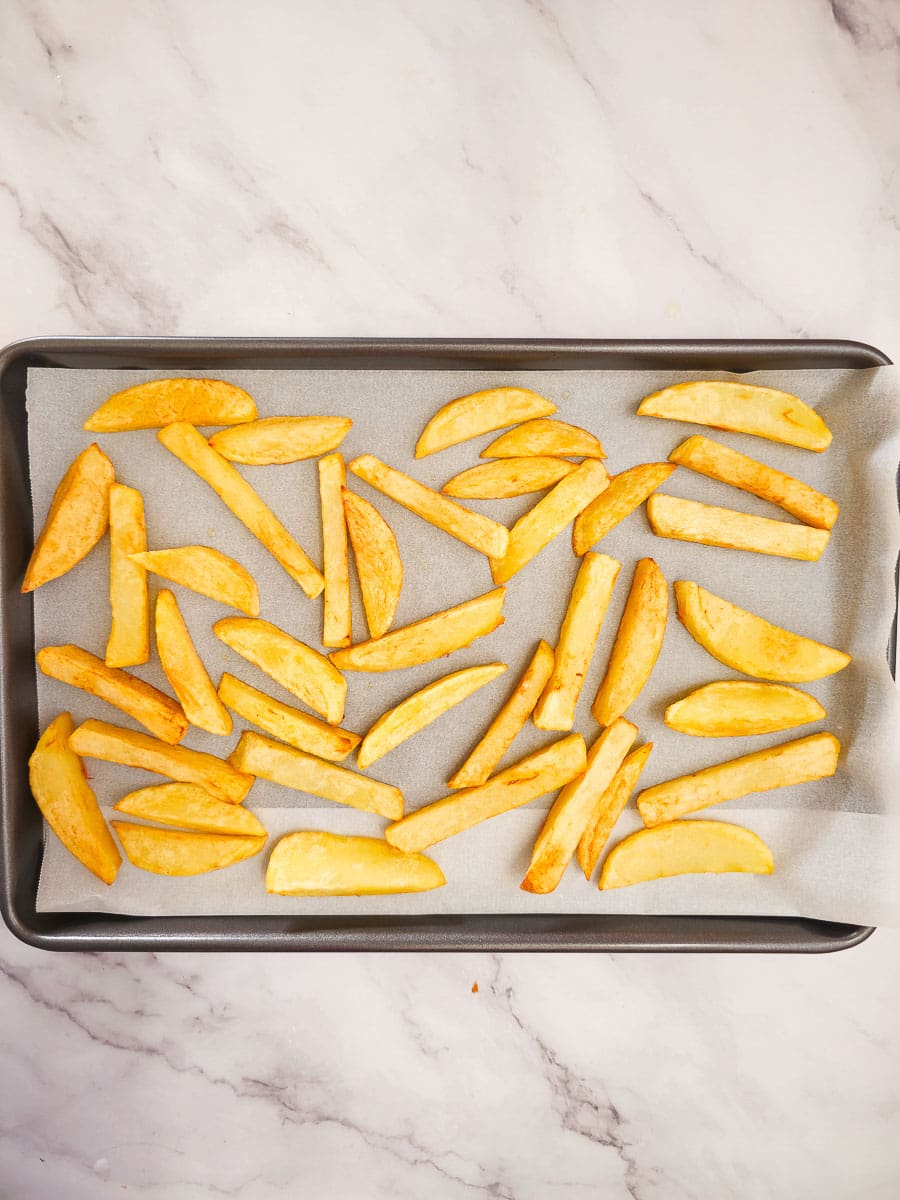
2. Place in preheated oven and bake at 220°C (425°F) for 25-30 minutes, turning the fries halfway through the cooking time to ensure they bake evenly. Bake until the fries are golden on the outside and tender on the inside.
If you are preparing this Greek Style Potato Omelette for lunch or dinner, it goes really well with a Greek salad or a Greek Lettuce Salad (Maroulosalata).
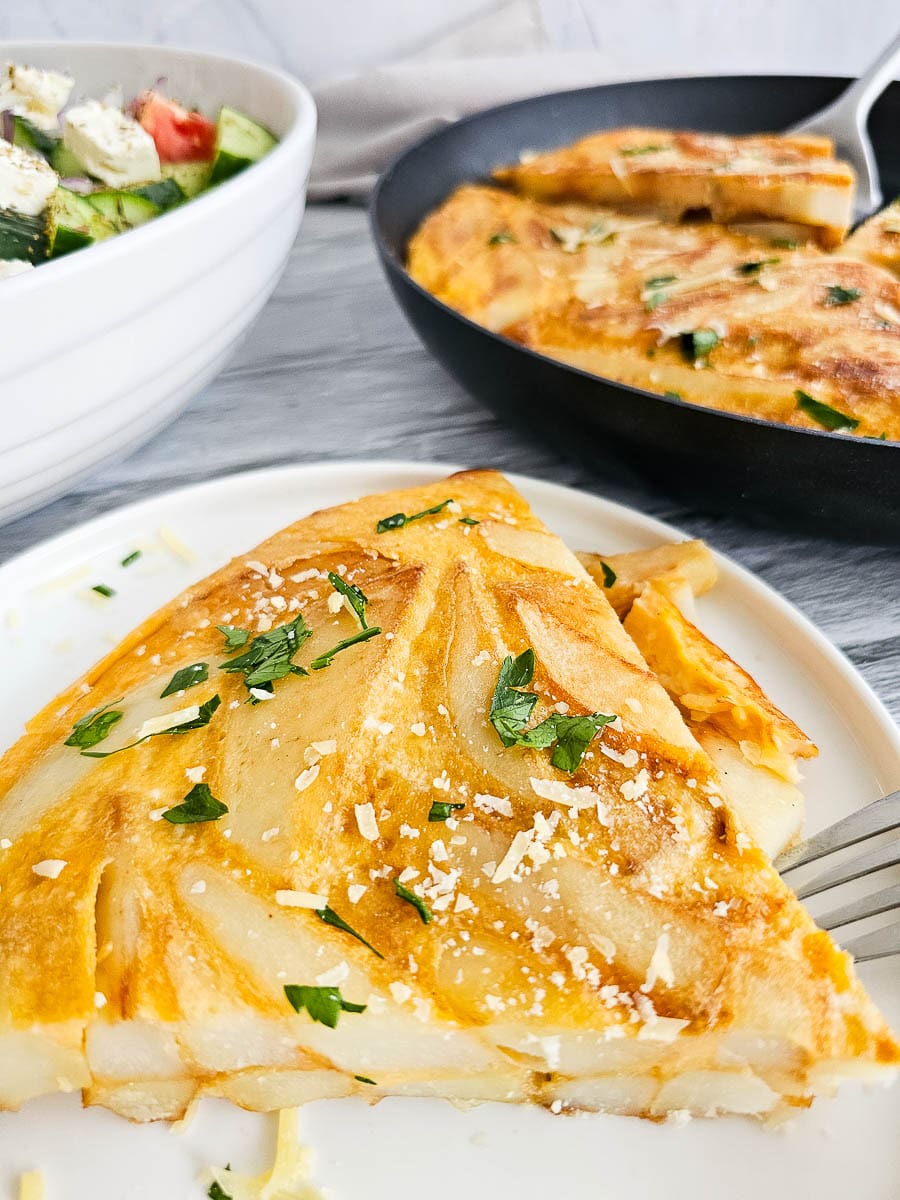

Health benefits of Greek Style Potato Omelette
Potatoes are a good source of vitamins and minerals, including vitamin C, vitamin B6, and potassium. They provide dietary fibre, which is beneficial for digestive health. Extra virgin olive oil is rich in monounsaturated fats, which are heart-healthy and can help reduce bad cholesterol levels. It also contains antioxidants, such as vitamin E and polyphenols, which have anti-inflammatory properties. Eggs are rich in high-quality protein, essential vitamins such as vitamin D, B6, B12, and minerals like zinc, iron and copper, promoting brain health and aiding cell membrane function. Parmesan cheese offers vital nutrients including calcium, protein, and vitamins A, B12 and riboflavin, supporting bone health and muscle function.
What should I do with the leftover oil?
Strain the oil and store it in an airtight container or glass jar. This eliminates wastage, allowing you to reuse it for deep frying or cooking other dishes.
When properly strained and stored, you can reuse the oil for frying potatoes up to 2-3 times and it can last for up to a month when stored in a cool, dark place. Alternatively, you can use the oil when cooking other meals. However, always check for signs of spoilage, such as off smells or a change in colour, before reusing.
Why strain the oil?
Straining removes food particles that can promote bacterial growth and cause the oil to spoil quickly. It also prevents these particles from burning during reheating, preserving the oil’s flavour and extending its usability.
How to strain the oil
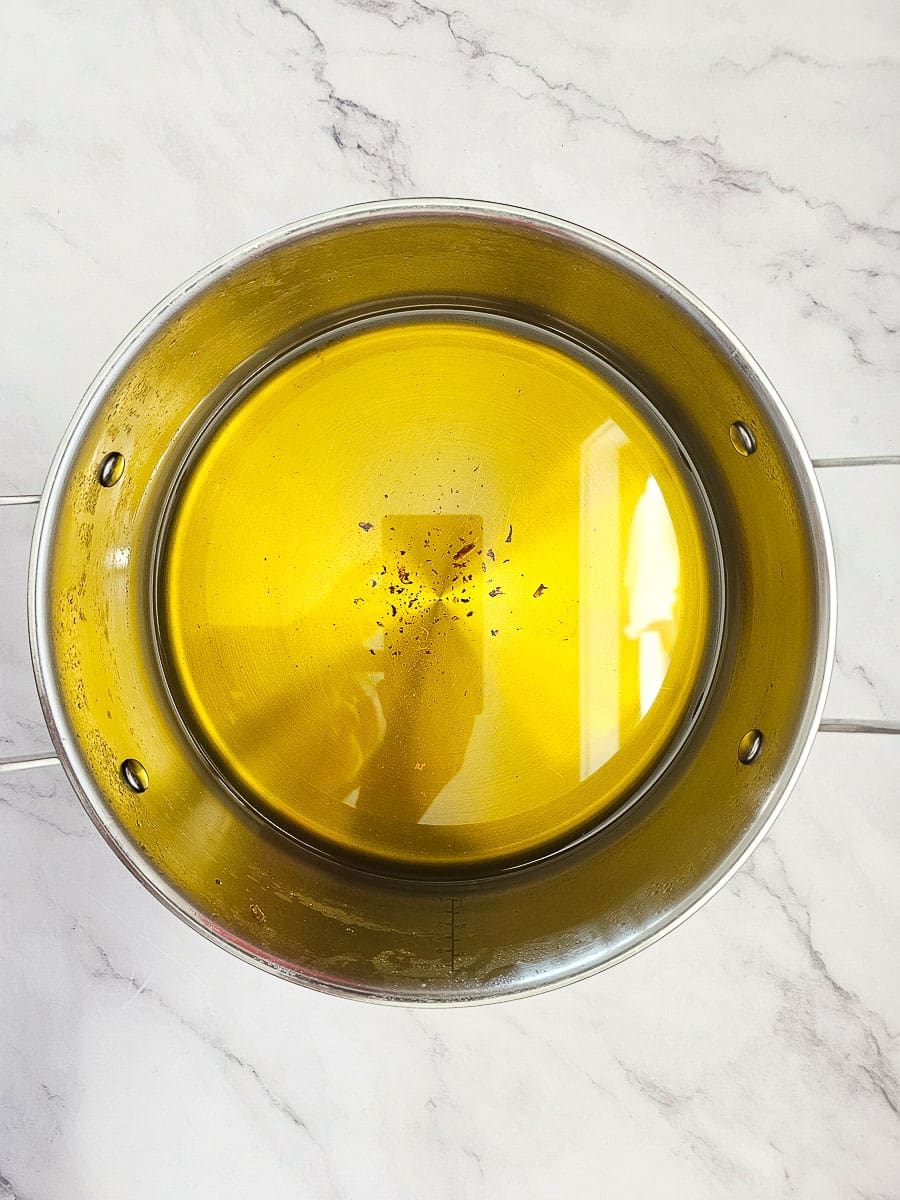
1. Allow the oil to cool to a safe handling temperature.
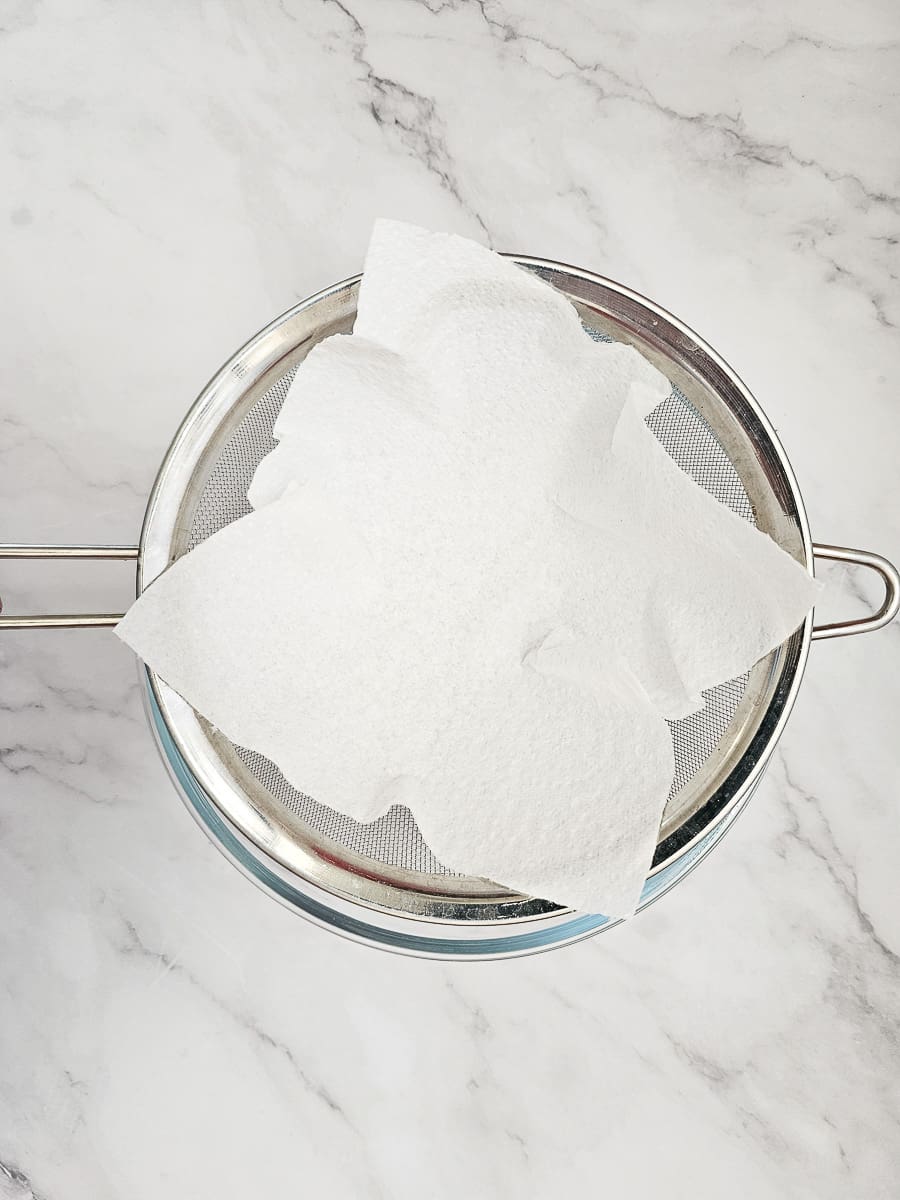
2. Line a strainer with a paper towel.
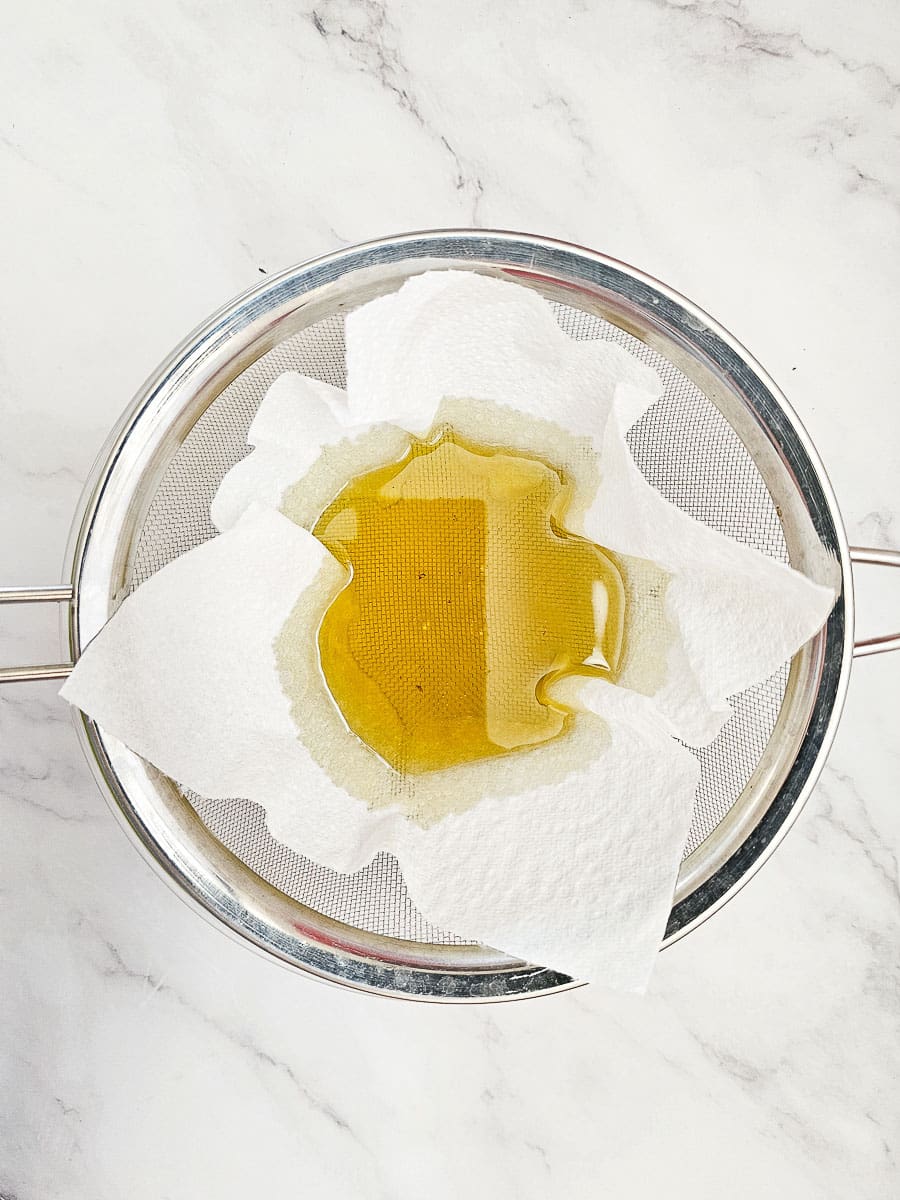
3. Slowly pour the oil through the lined strainer.
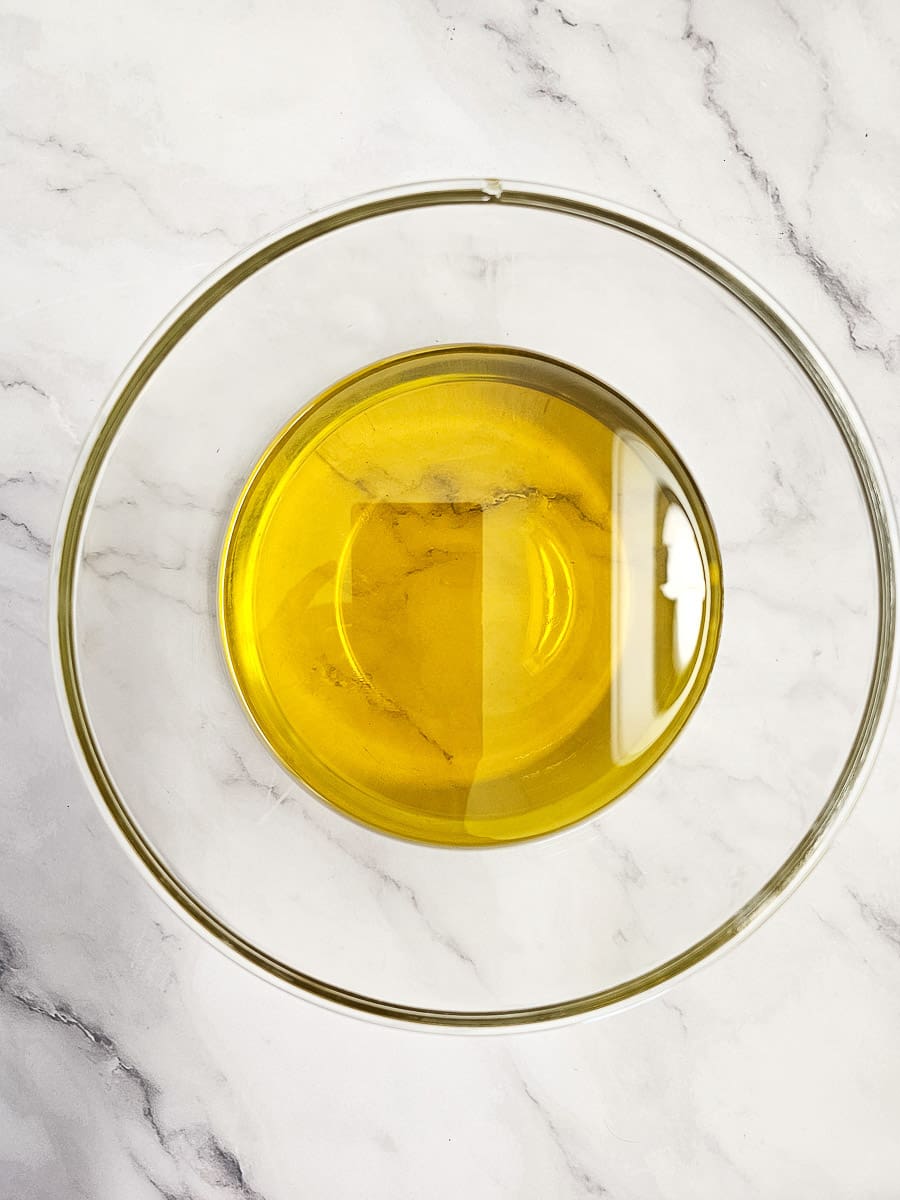
4. Let the oil drain completely into a bowl or a container.
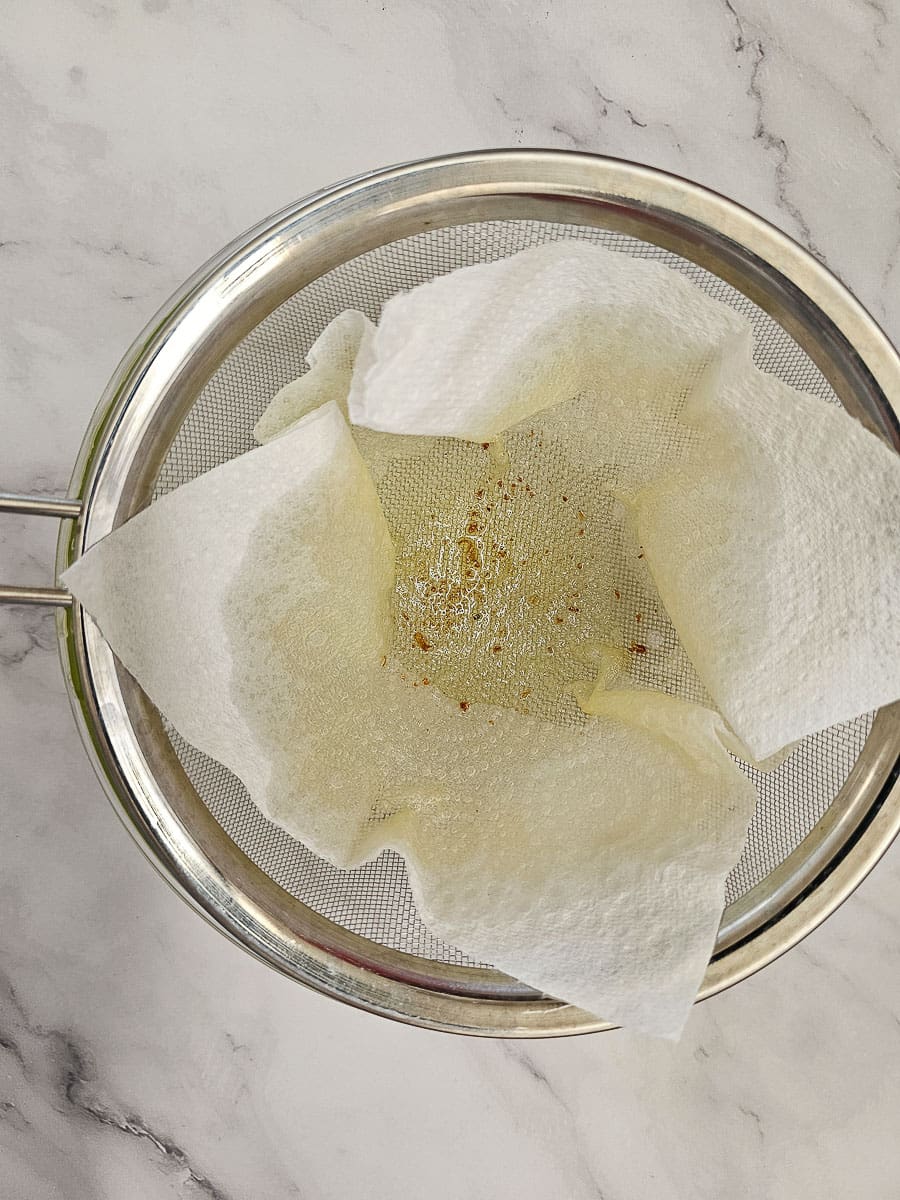
5. The paper towel should have caught all the food particles.
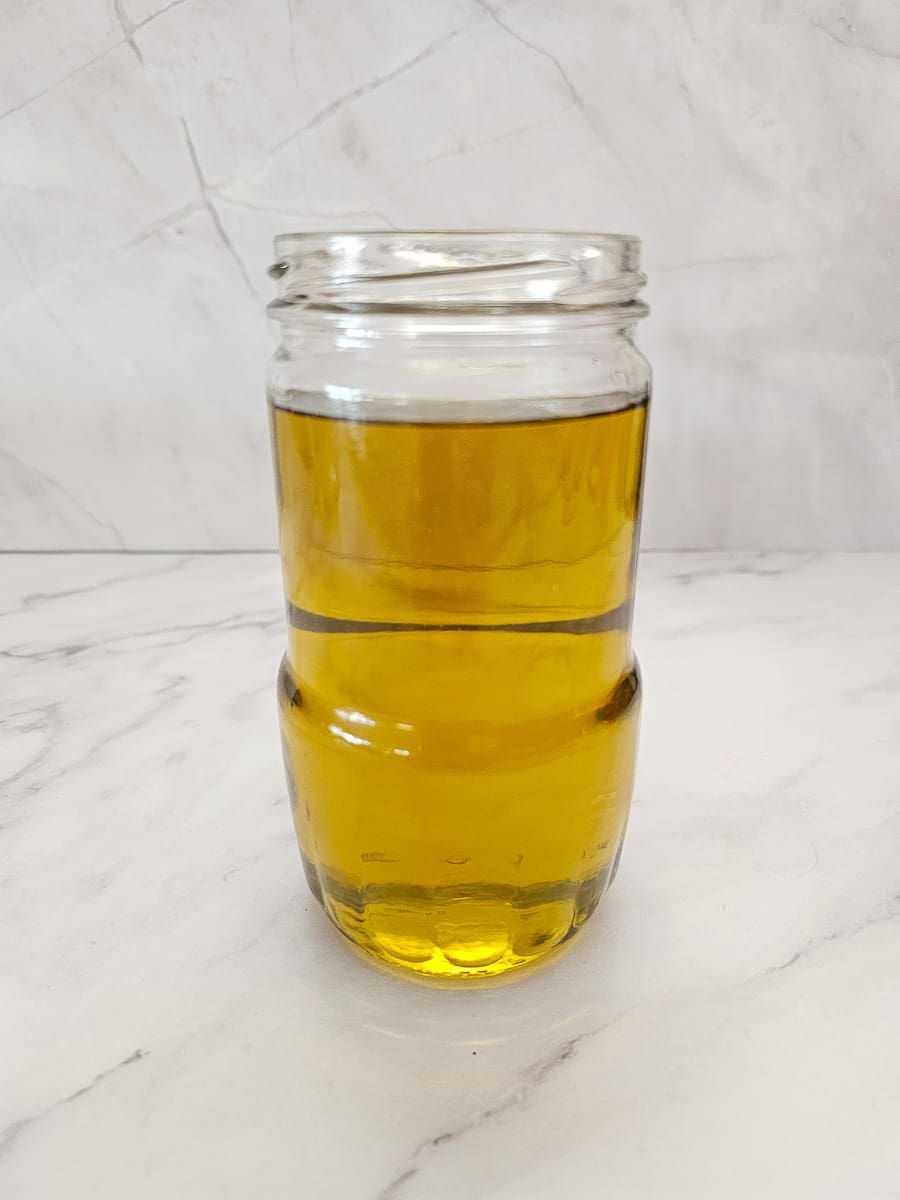
6. Transfer the strained oil to an airtight container or glass jar and seal.
Tips for making Greek Style Potato Omelette
Soak the potatoes
Soaking sliced potatoes in cold water for 30 minutes not only removes excess starch but also helps them retain their shape and texture during frying. This step prevents uneven browning and potential burning, resulting in crispier and fluffier fries. Additionally, soaking prevents the potatoes from sticking together, ensuring even cooking.
Choose the right pot for frying hot chips
For frying hot chips, it’s best to use a heavy-based saucepan or a deep fryer, as they provide even heat distribution and can withstand high temperatures without warping. Additionally, choose a pot with high sides or enough room to accommodate the bubbling that occurs once the chips are added, ensuring oil splatter is minimised and the chips cook evenly.
Test the temperature of the oil
When deep frying potatoes for fries, heat the olive oil in a heavy-based saucepan to approximately 175°C/350°F. You can use a thermometer to monitor the temperature of the oil. Alternatively, test the oil by adding a raw potato strip to the oil. If the potato strip sizzles once added to the oil, it’s a sign that the oil is hot enough for frying.
Use a non-stick frying pan
A non-stick frying pan ensures the omelette doesn’t stick during cooking, making flipping easier and preventing it from breaking apart. This helps the omelette retain its shape and achieve a golden-brown exterior.
Storage
If you have any leftovers, store them in an airtight container in the refrigerator for up to two days.
When ready to serve, reheat gently in a pan or microwave to maintain the texture and flavour. This way, you can enjoy the omelette as a quick and satisfying meal later on.


